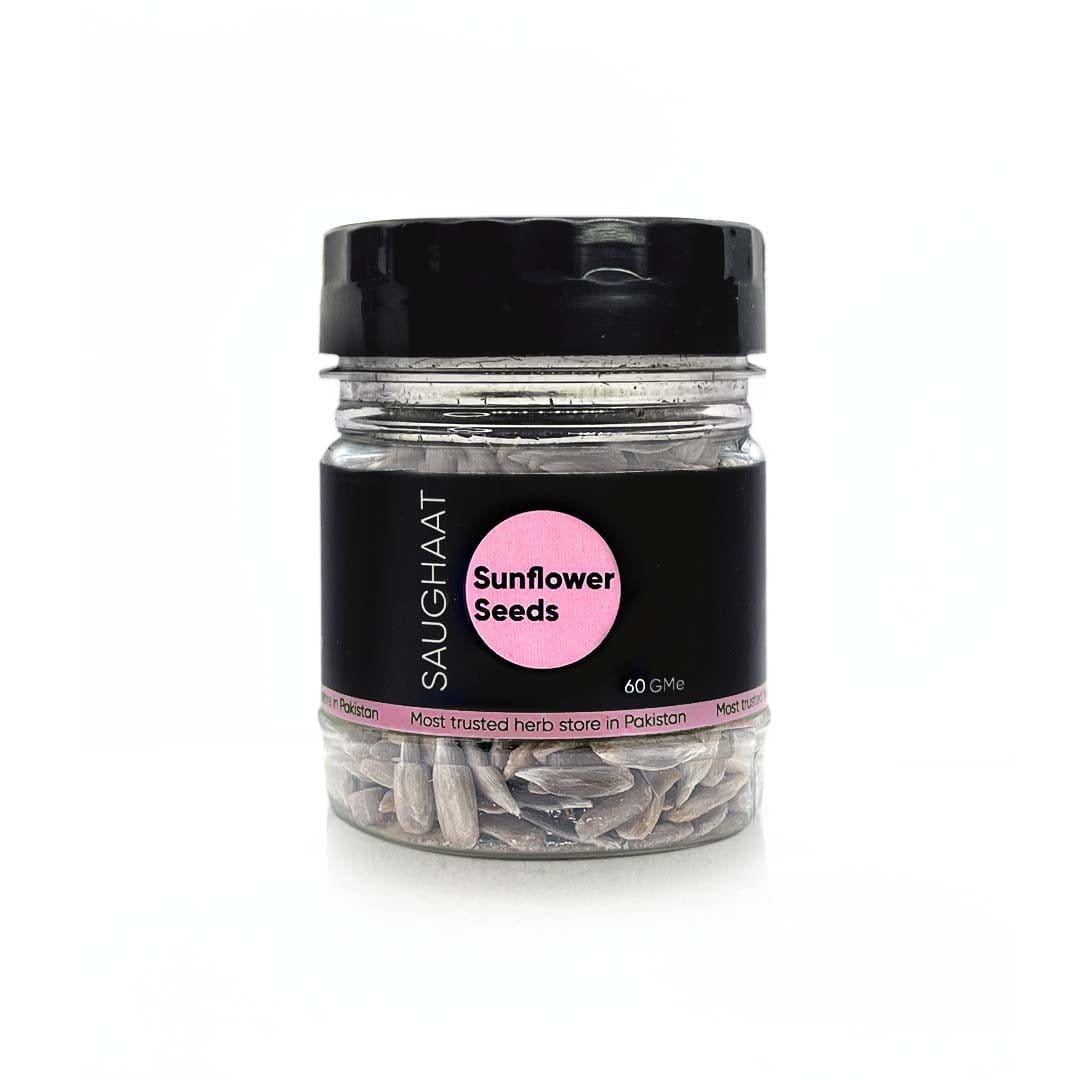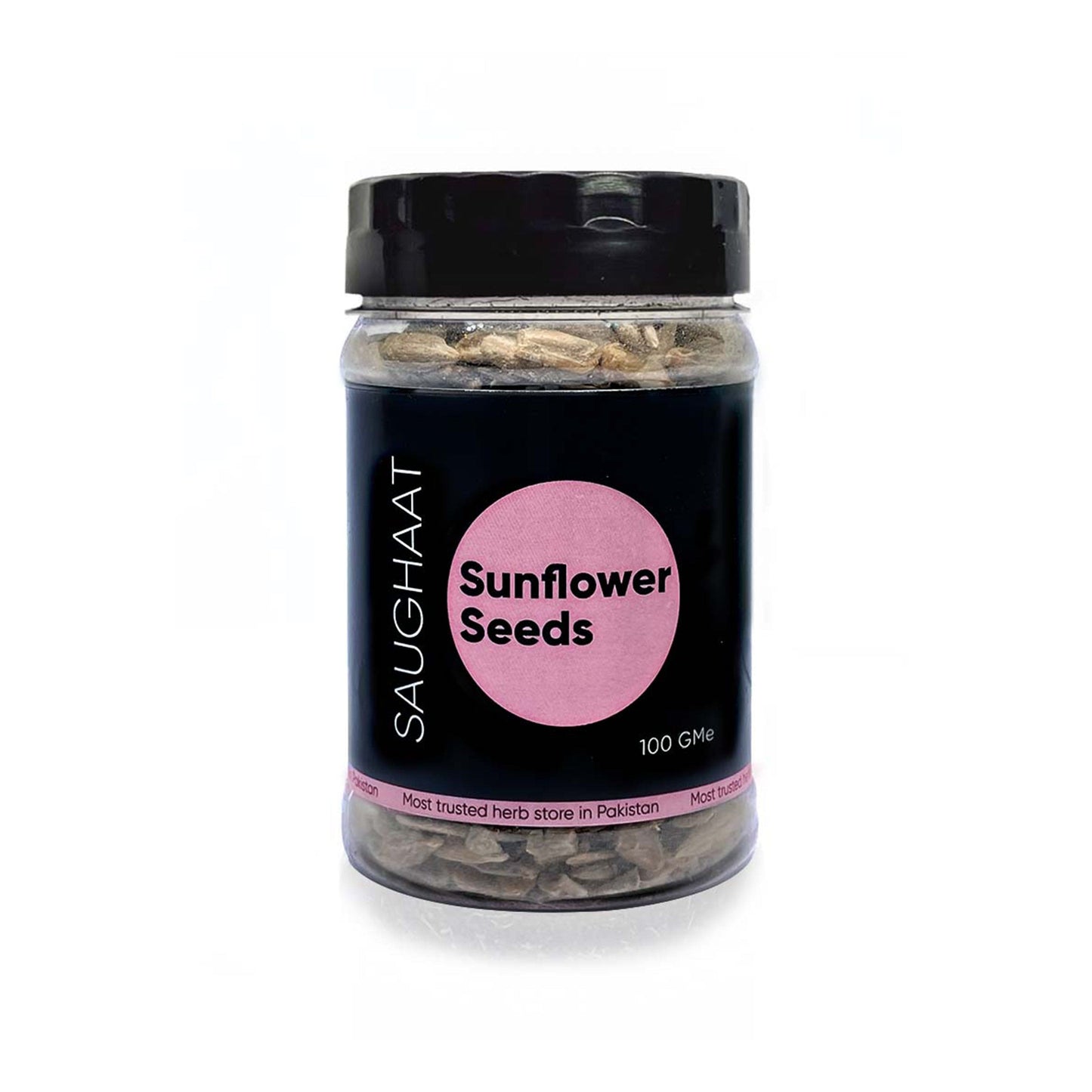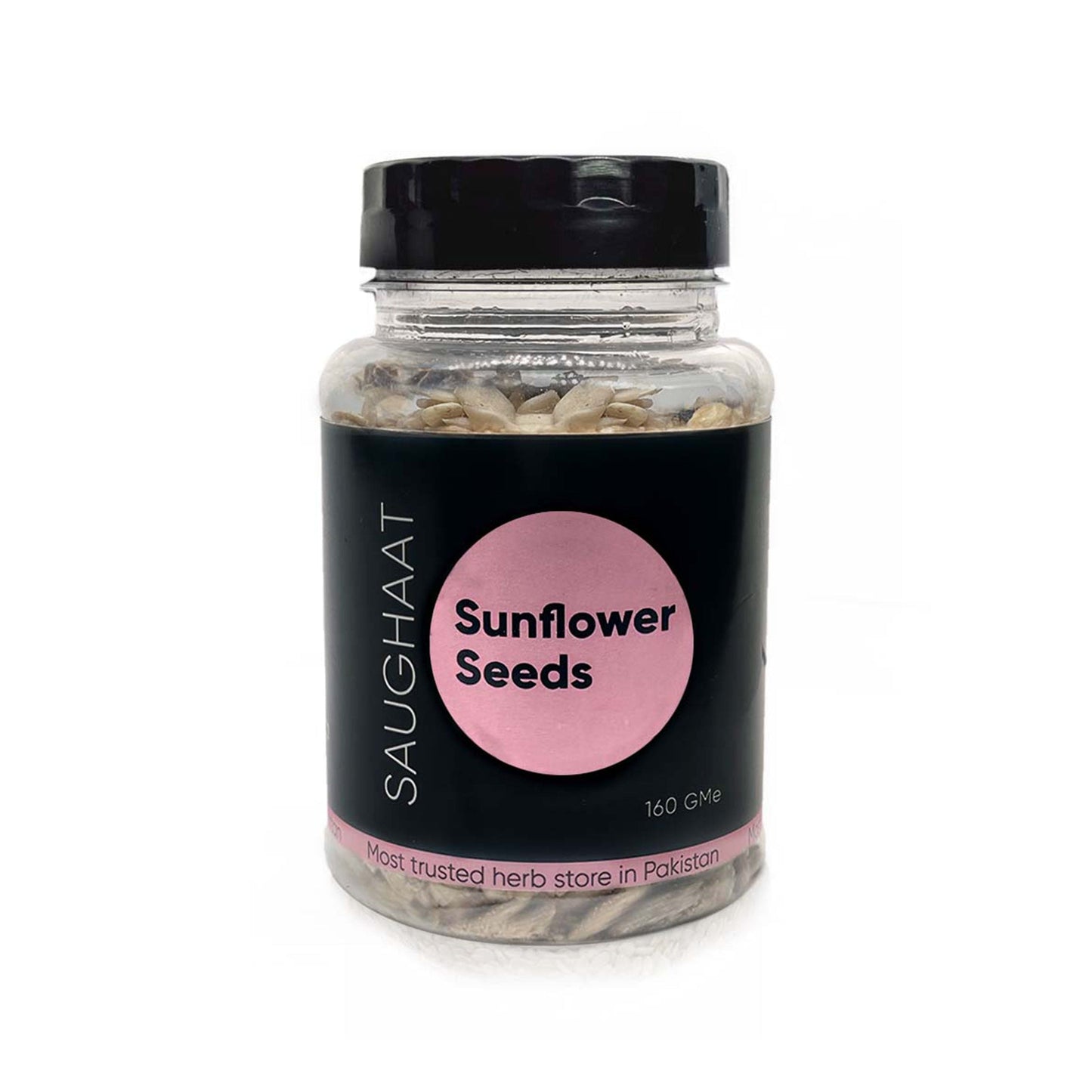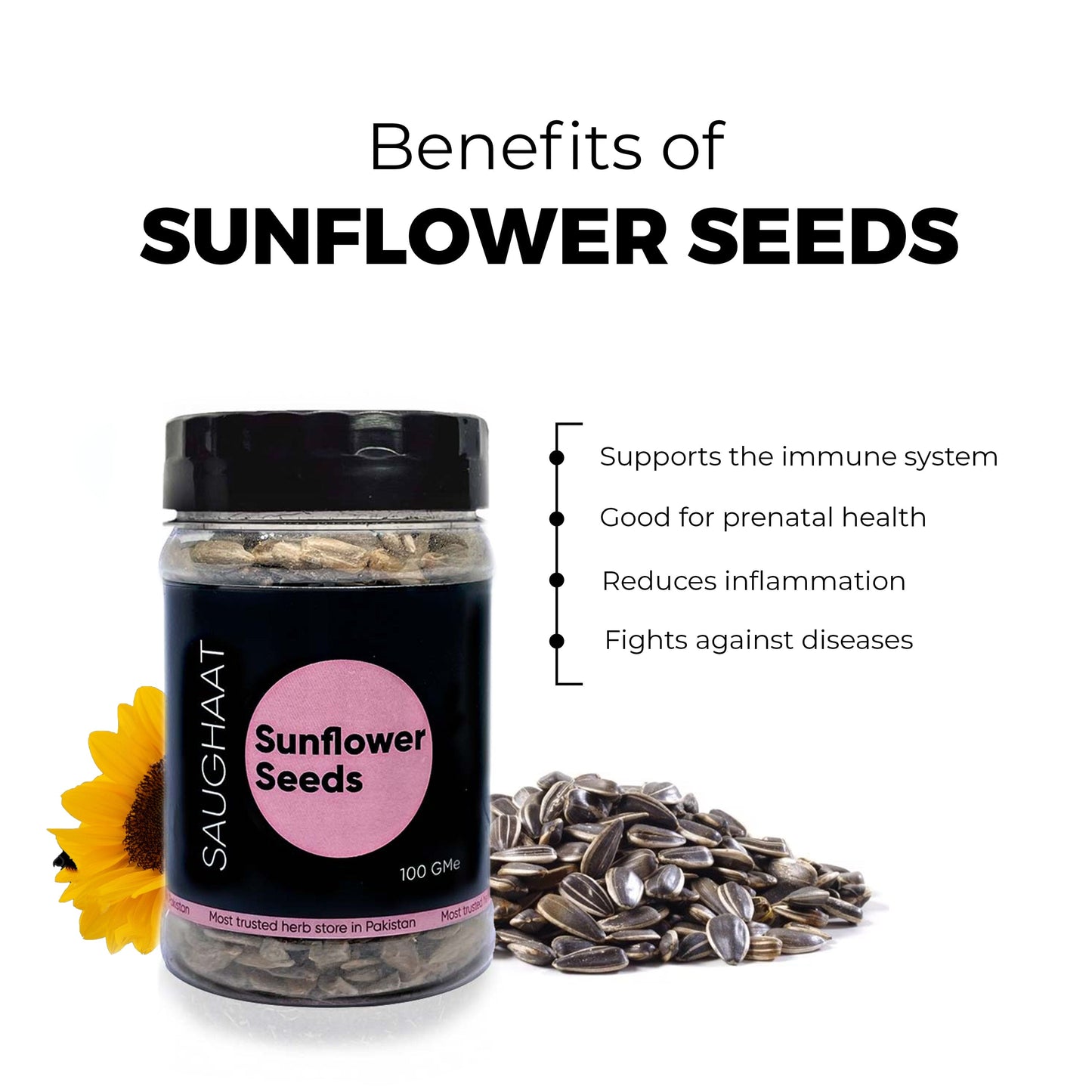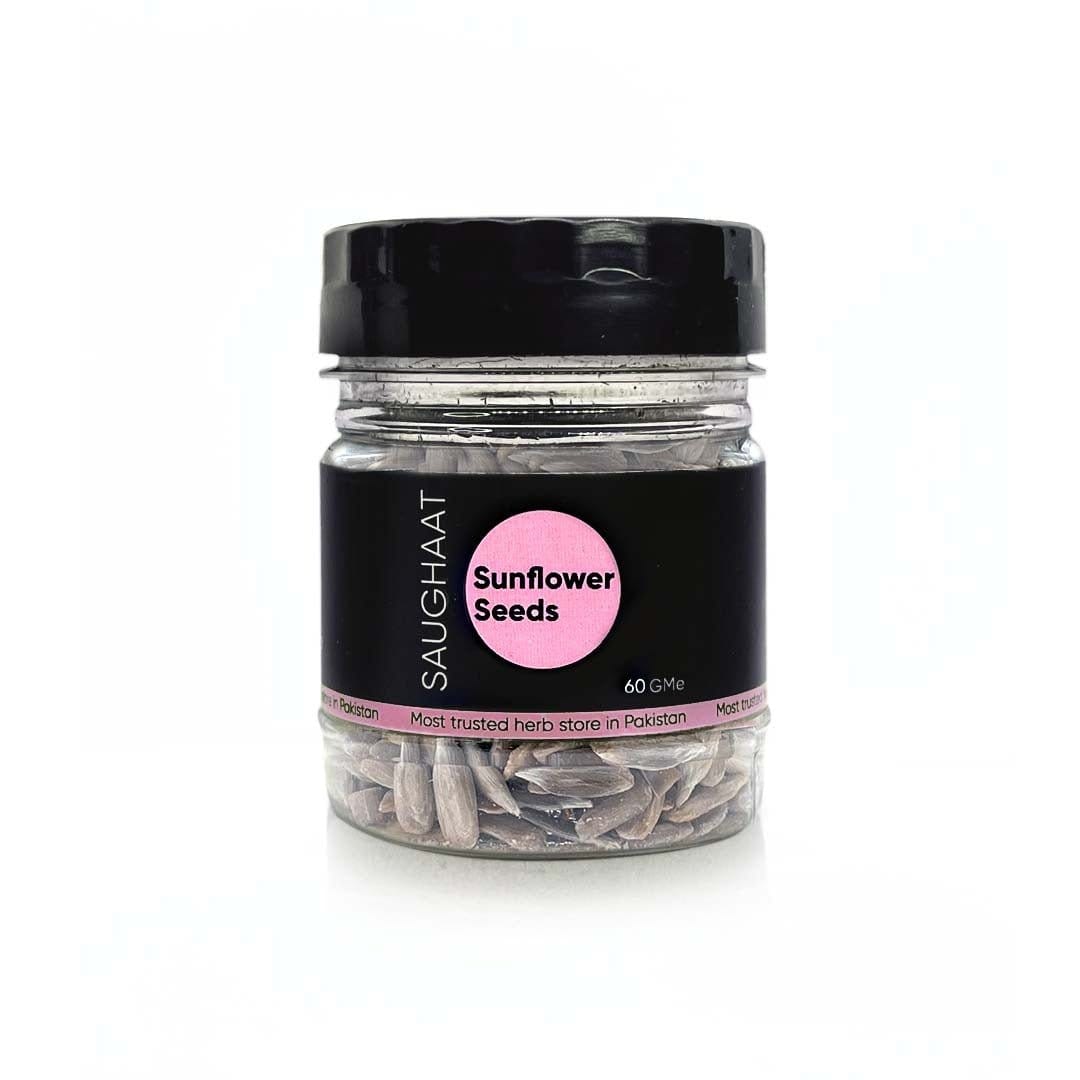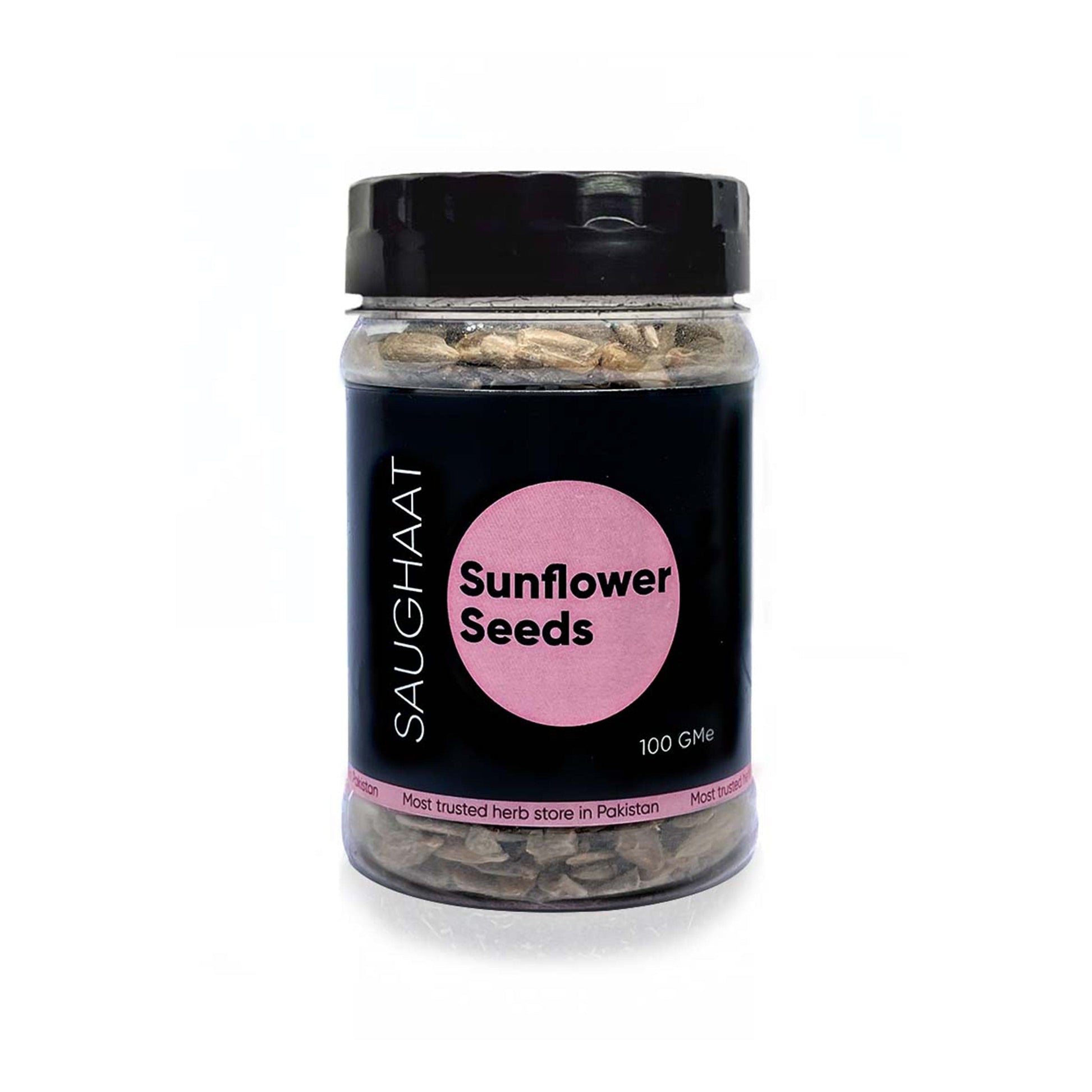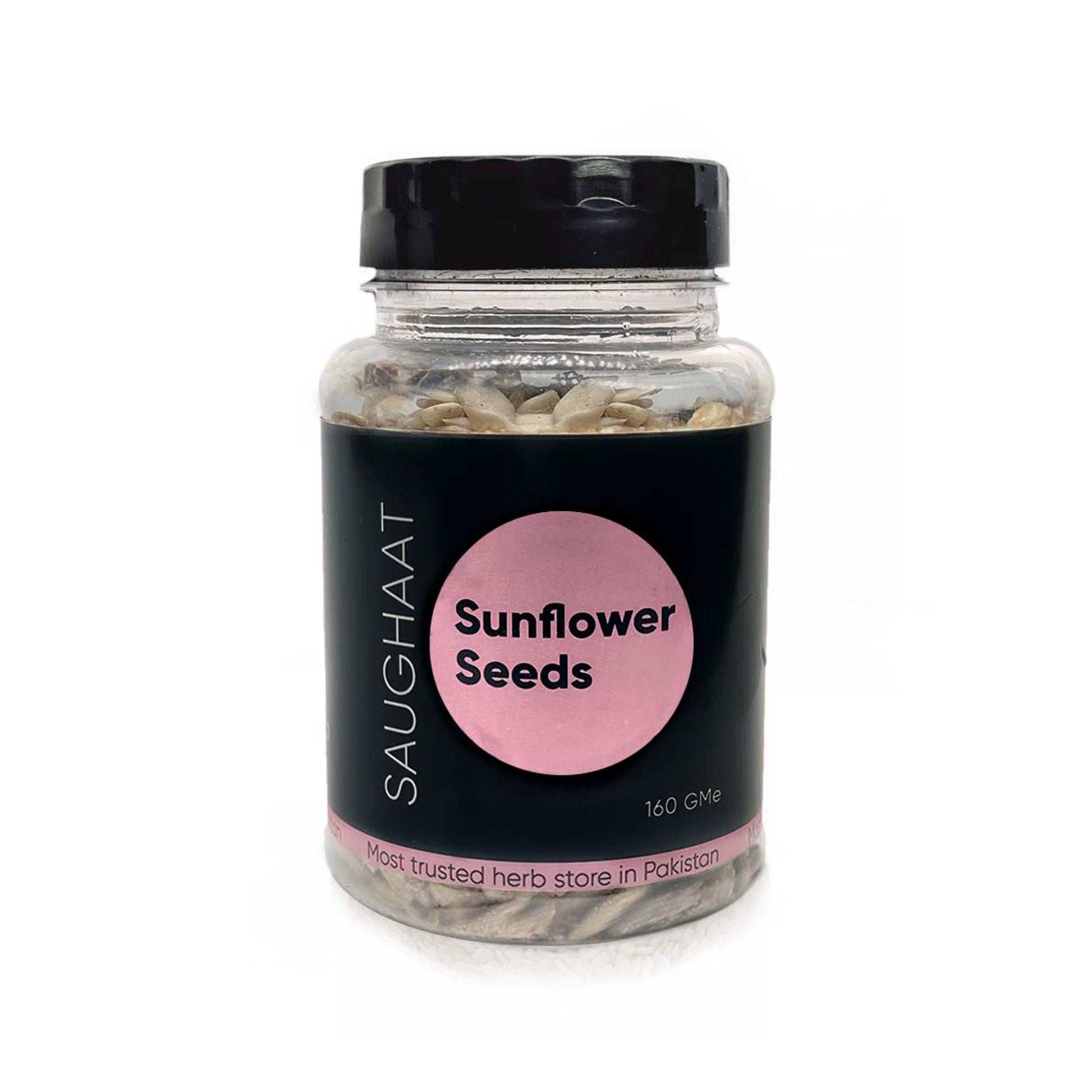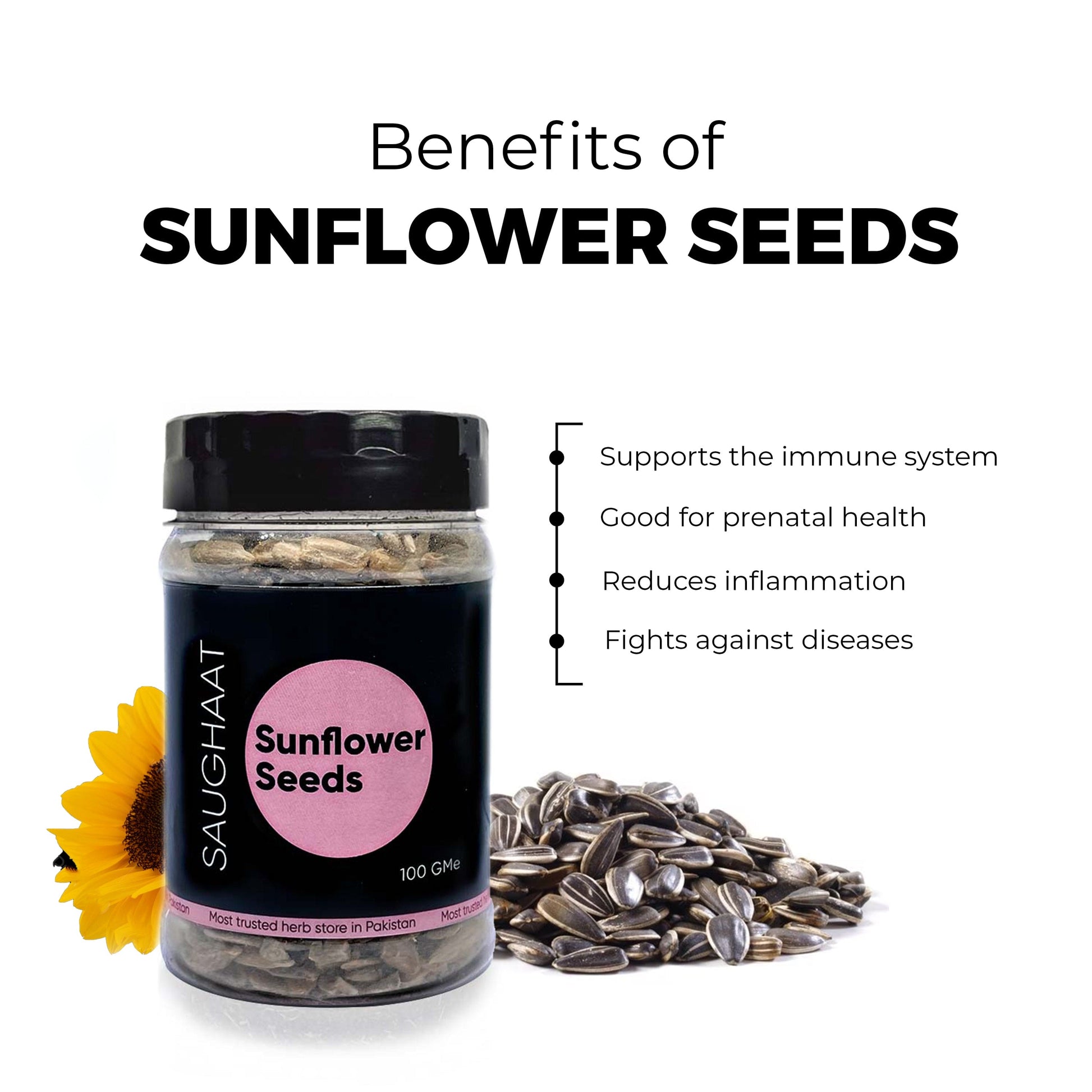Saughaat.com
Sunflower Seeds
Sunflower Seeds
5.0 / 5.0
(5) 5 total reviews
Couldn't load pickup availability
Sunflower seeds are rich in nutrients such as selenium, flavonoids, and vitamin E. It has protein that helps to boost energy and vitamin B to support the immune system. It is good for prenatal health and is used in seed cycling as well.
- Supports the immune system
- Good for prenatal health
- Reduces inflammation
- Fights against diseases
The large flower heads of a sunflower plant contain seeds that are edible and have a slightly nutty flavor. They are a great snack for you to take around when you are on the go.
Benefits of Sunflower Seeds
Anti-inflammatory
They are rich in polyunsaturated and monosaturated fats that are considered healthy fats. A three-quarter cup worth of sunflower seeds contains 14g of fat. These help to reduce inflammation and cholesterol levels in the body.
Reduces risk of diseases
They are a great source of many nutrients such as selenium, which is a compound that prevents many chronic diseases, flavonoids and vitamin E. It may even reduce the risk of developing type-2 diabetes and heart disease.
Boosts your energy
Sunflower seeds are high in protein that help to boost energy levels along with vitamin B and Selenium. To keep you active all day, vitamin B1 in sunflowers aids in the conversion of food to energy. Selenium also helps in better circulation of blood and oxygen throughout the body.
Supports the immune system
Zinc and selenium in the seeds help to support the immune system and prepare your body to better protect itself from viruses.
Supports prenatal health
The seeds are a good source of folate which help support the placenta and reduce the risk of developing spina bifida. Vitamin E is vital for prenatal health which helps in the development of muscles and red blood cells of the fetus, whereas zinc assists in the production of enzymes and insulin.
Sunflower seeds in seed cycling
Sunflower seeds are used along with sesame seeds in the second phase of seed cycling. You take one tablespoon of this everyday from the day you begin ovulation till your next period, which is usually around 14 days. This helps in removing excess estrogen and improving progesterone levels in the body.
How to use
Sunflower seeds can be added to many foods. These are a few ways to incorporate these seeds into your meals:
- Add them to your salad
- Put them in trail mixes
- Sprinkle it over oatmeal
- Put in stir fry or mixed vegetables for an added nutty flavor
- Incorporate into batters for baked goods
- As a replacement for peanut butter, use sunflower butter
Share
FAQ's
Are sunflower seeds nutrient-rich?
Are sunflower seeds nutrient-rich?
Sunflower seeds are nutrient-rich. They are a source of essential vitamins and minerals, including vitamin E, magnesium, and selenium.
Do sunflower seeds help with weight loss?
Do sunflower seeds help with weight loss?
They can aid in weight loss due to their fiber content, which helps control appetite.
Are sunflower seeds safe for children to eat?
Are sunflower seeds safe for children to eat?
Yes, but be cautious of choking hazards for very young children.
Can sunflower seeds promote heart health?
Can sunflower seeds promote heart health?
Yes, they promote heart health by containing unsaturated fats that lower bad cholesterol levels, fiber that reduces heart disease risk, and phytosterols that inhibit cholesterol absorption in your digestive tract.
Do sunflower seeds have any side effects?
Do sunflower seeds have any side effects?
Excessive consumption can lead to calorie overload, so moderation is key.
